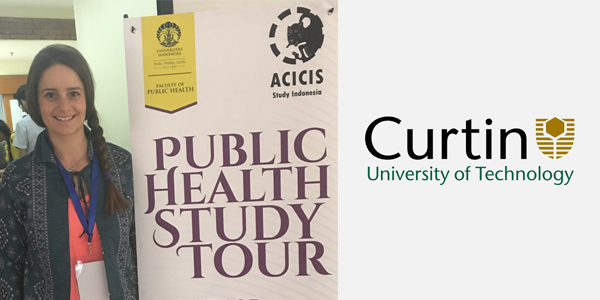
Linda De Ocampo was a participant in the 2017 Public Health Study Tour from Curtin University. Linda is studying a Bachelor of Science (Health Science).
Q: Why did you decide to undertake the ACICIS program?
I travel to Indonesia after every university semester for a mini holiday. I love Indonesia, just like home.
I wished to take the opportunity and view Indonesia from a perspective other than in holiday mode and gain real life versus textbook experience within the public health sector. I wanted to experience being with the people and feel the way they lived.
The opportunity to partake in the ACICIS Public Study Tour also granted 25 credit points towards my degree.
Q: What did you find to be the most challenging about your experience on the PHST?
The Public Health Study Tour is intensive with many activities to complete within the two-week time frame. I exercised daily and was conscious of choosing foods that contained a nutritional value as quality foods were not always available.
Taking an excursion to the waste management disposal in Yogyakarta was the most difficult. The tip smelt so bad. The lack of worker safety regulations and the disposal regulations overall were not good.
For the waste management excursion, I learned that I should not have worn any quality corporate clothing, including shoes as requested. It would have been more appropriate to wear clothing that can be washed or disposed of once soiled, especially after slipping over. You will understand after viewing a few pictures.
There are current challenges related to Indonesian public health (like child smoking or sex workers permitted to work post-HIV diagnosis, for example) that could have greater government focus and applied budget. At times it was hard to comprehend the lack of policy enforcement, especially within the health sector. Even if policies were enforced slowly and over time, I learned that this would still benefit Indonesians and their future health outcomes.
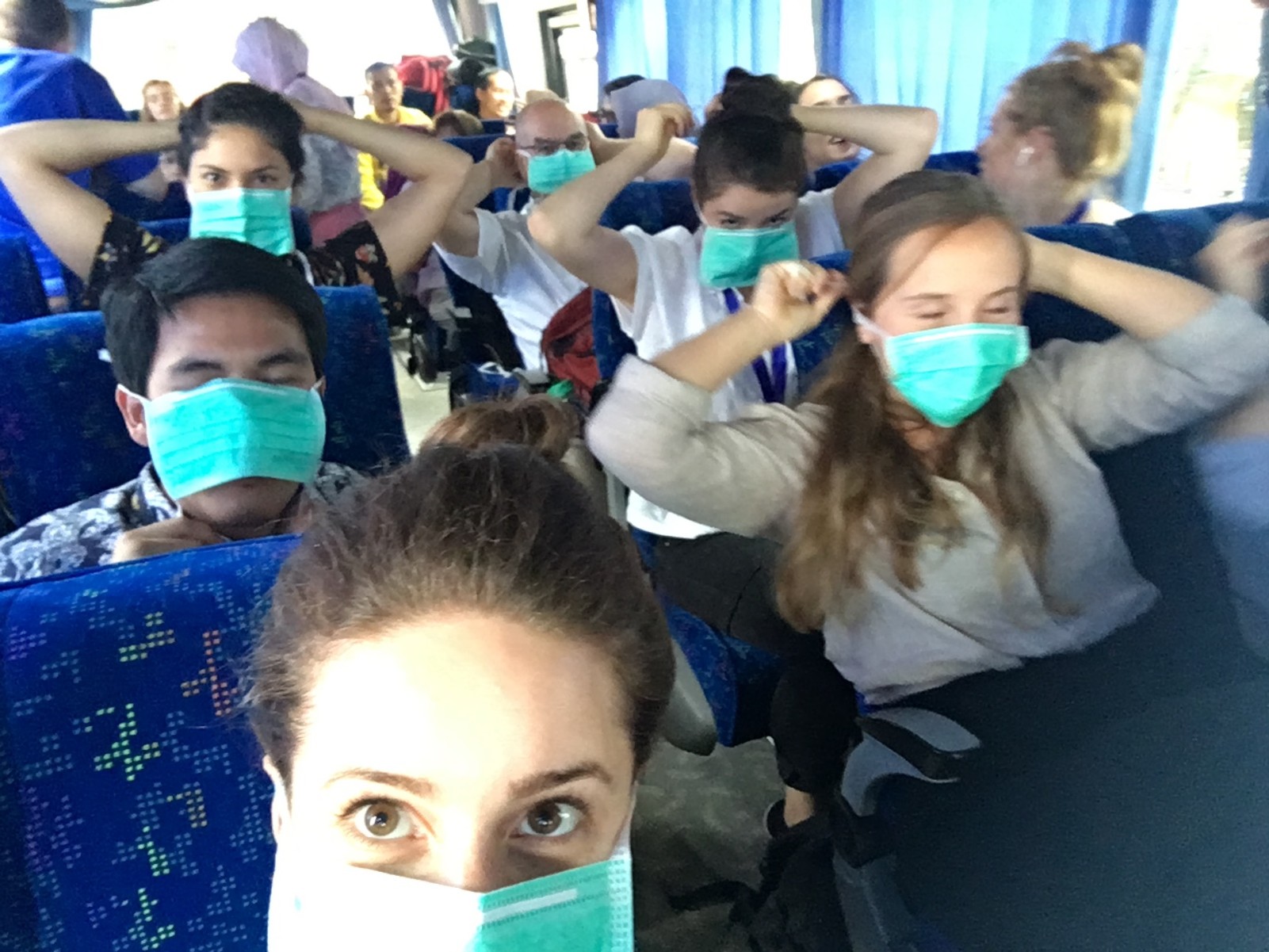
Waste disposal visit.
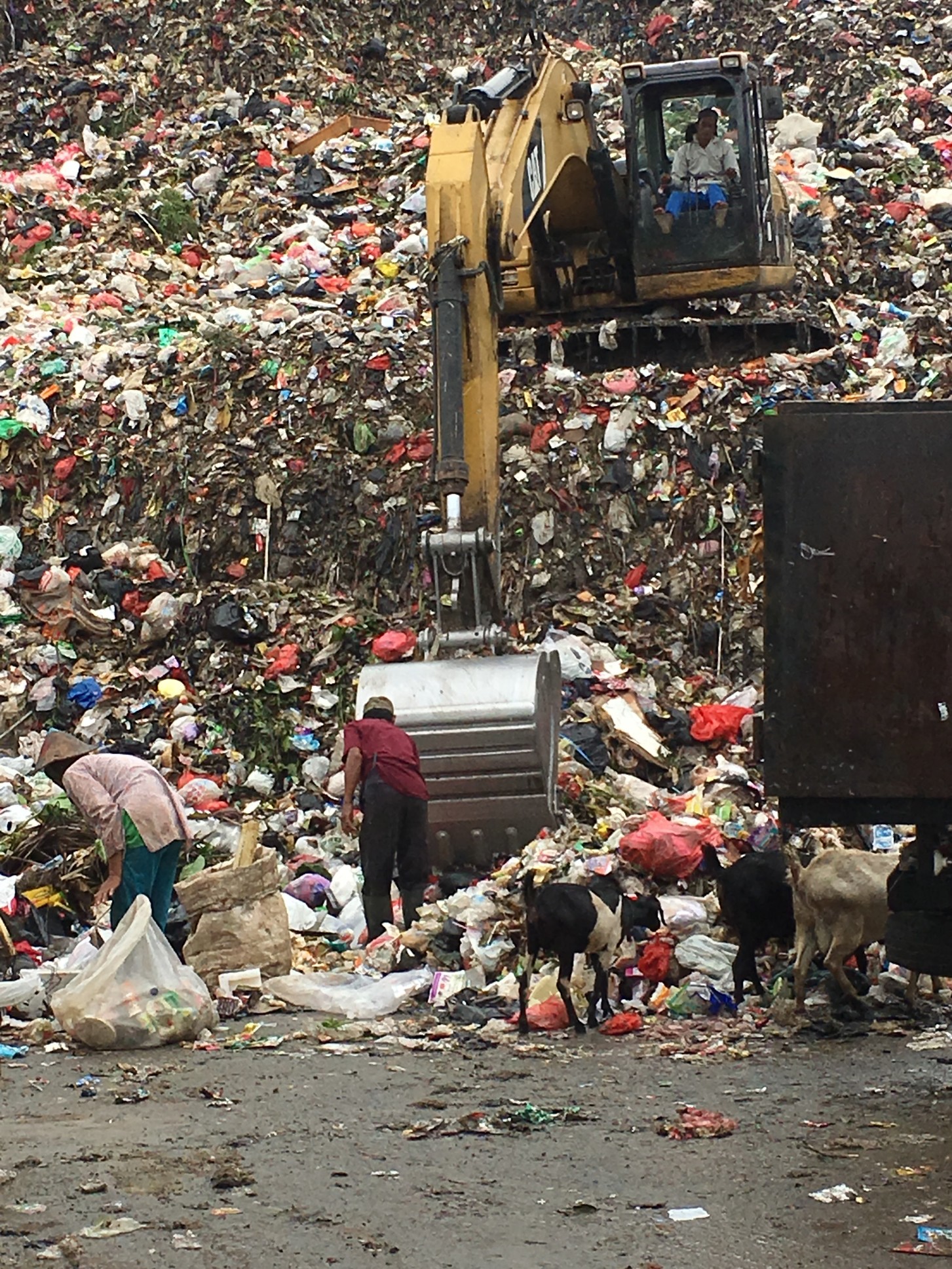
Workers have no shoes, masks, gloves or other protective measures. The digger does reach the top of the pile daily.
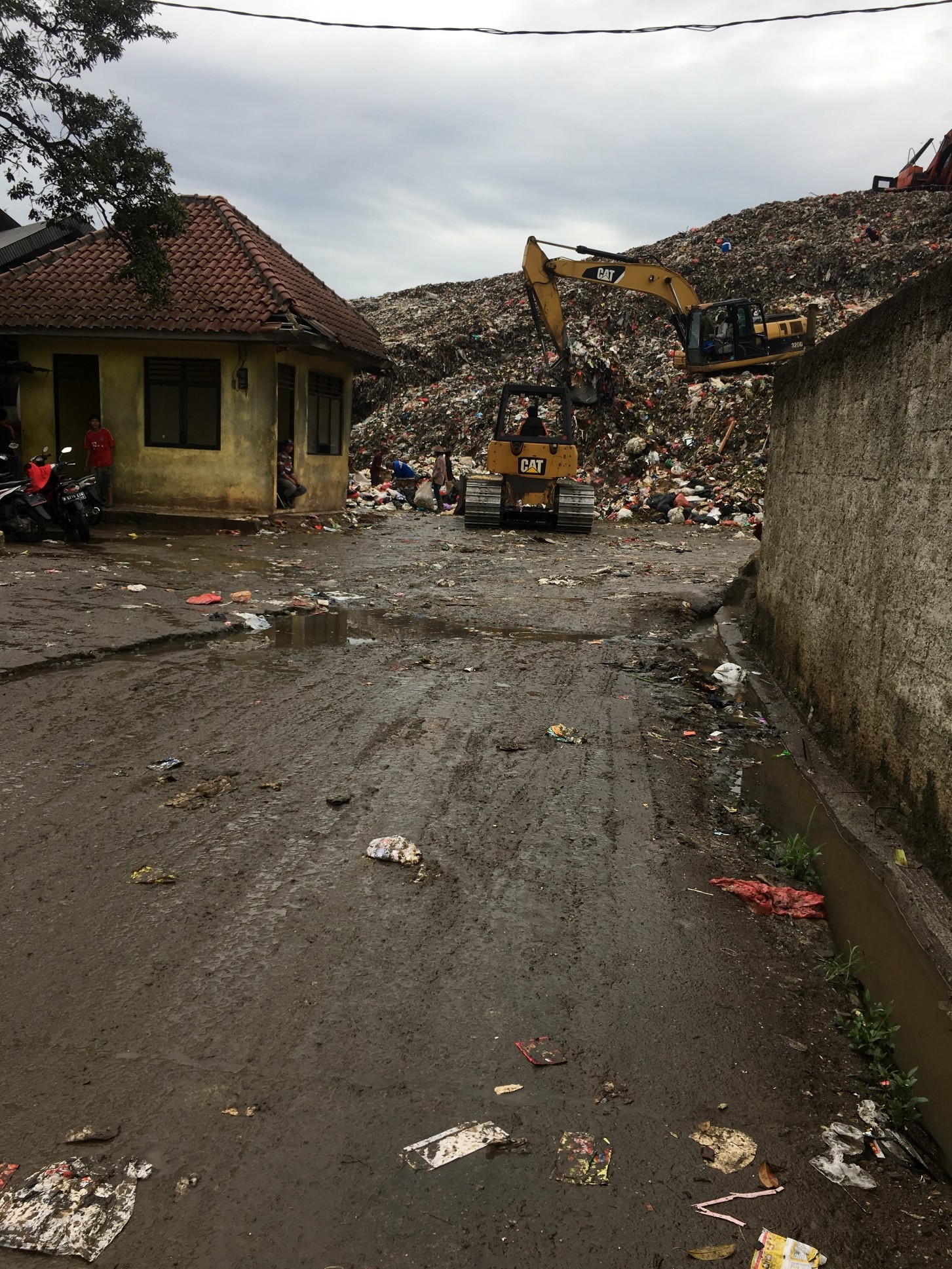
Whatever your thought is right now, it is one tenth of the real life experience.
Q: What public health issues in Indonesia have you become more interested in/aware of as a result of this tour?
I have become interested in Women’s and newborn health.
I became more mindful of the fact that women have less birthing options than women in Australia. The primary option is to give natural, vaginal birth at a local clinic or Puskesmus versus an assisted hospital delivery. The hospital delivery option is only available if the women have transport, money or a condition during pregnancy that is diagnosed by a nurse, midwife or doctor at a local Puskesmas. Not all families have access to health professionals or health care services over the 17, 500 Indonesian Islands.
Q: What was your favourite field trip?
My favourite field trip was to the primary school.
Teaching the children to wash hands and brush teeth was lots of fun. The children are very smart and talented, however, not having access to the essential health technologies like toothbrushes, clean running water, shoes or soap, for example, can be detrimental to their future if life and in health.
Coming from Australia, it opened my eyes to what my children and I have easy access to and take for granted on a daily basis. I believe this field trip is one that all children of Australia would benefit from.
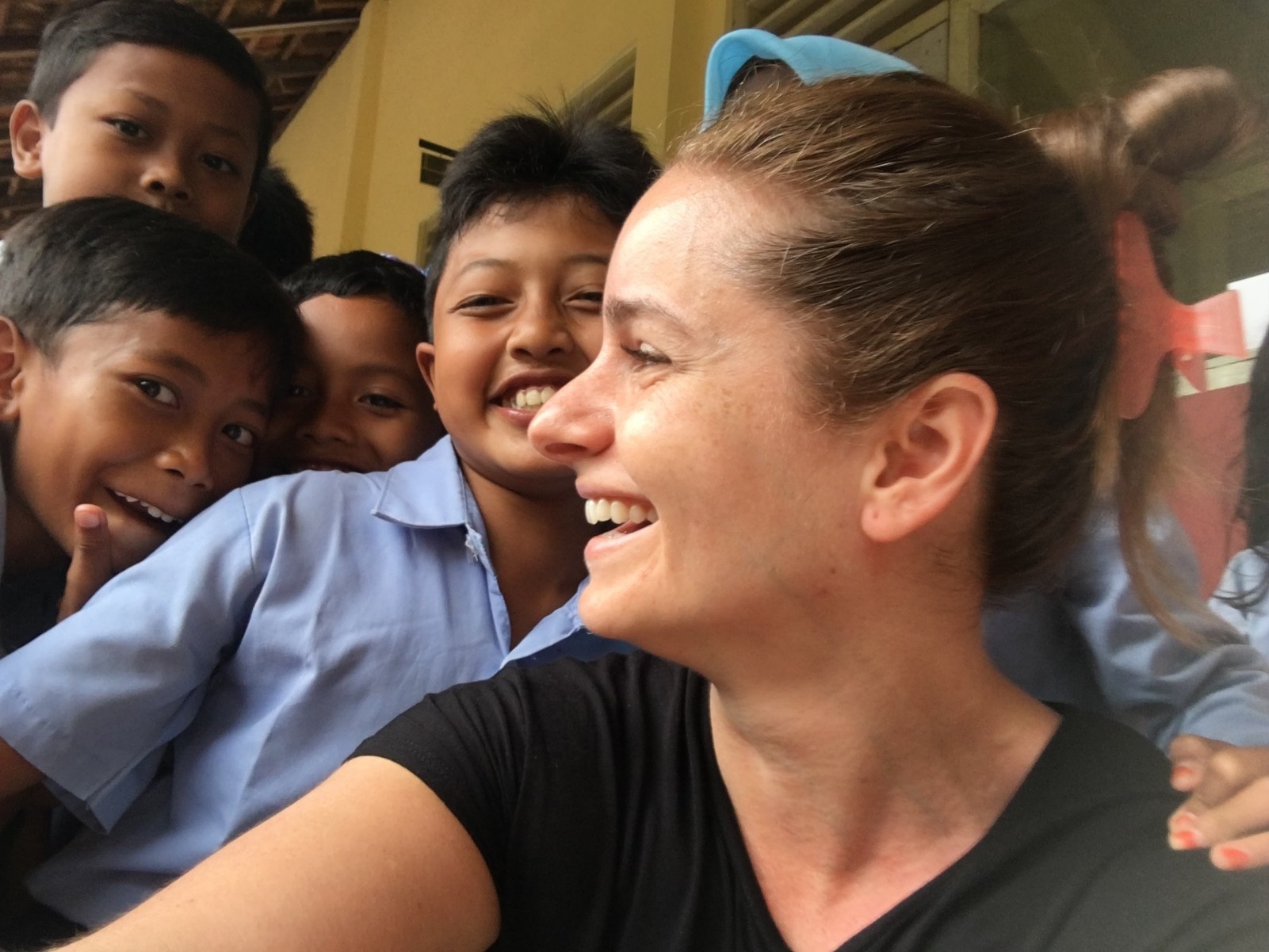
Playing with Indonesian children in Primary School.
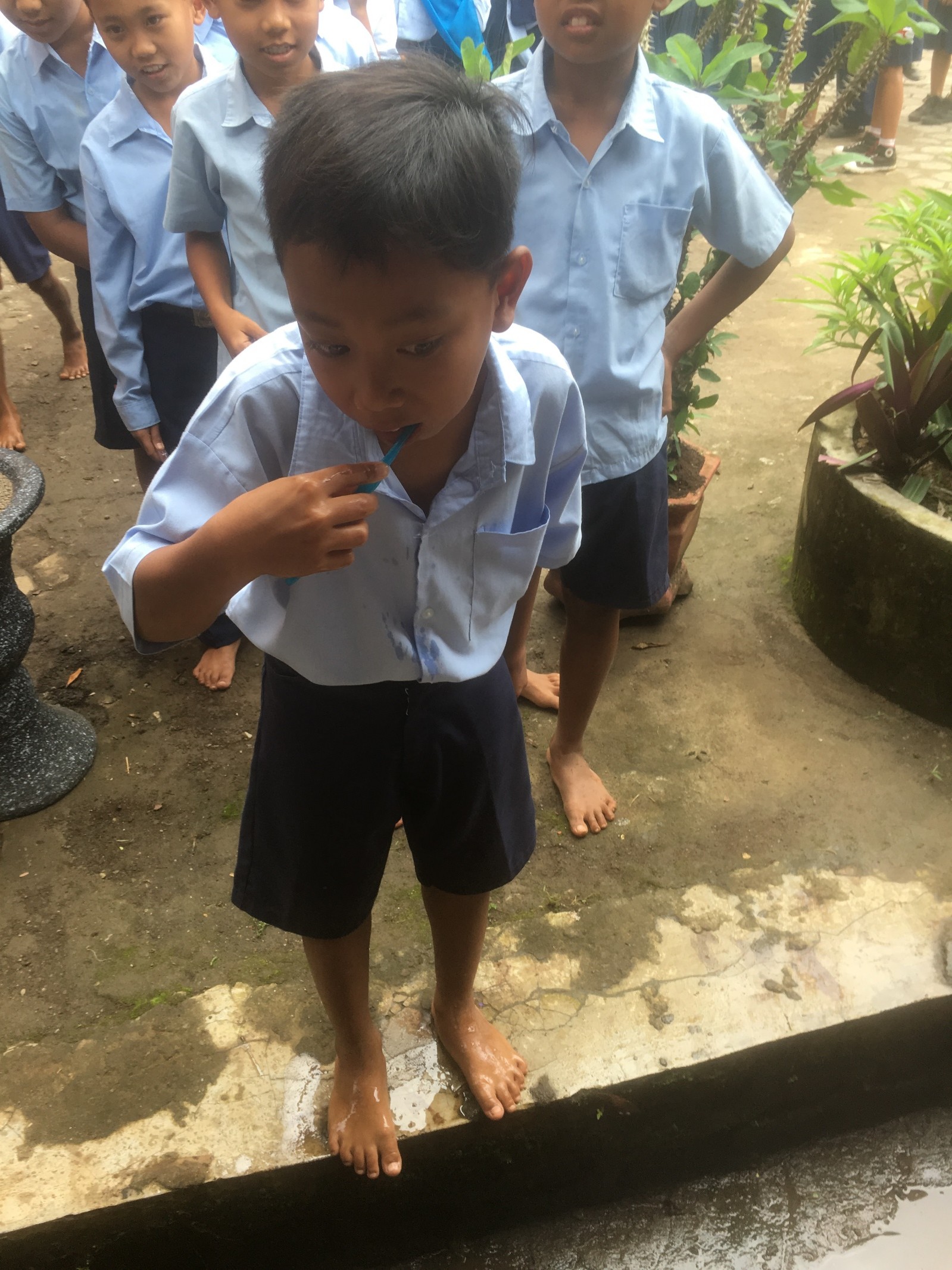
Teeth brushing education.
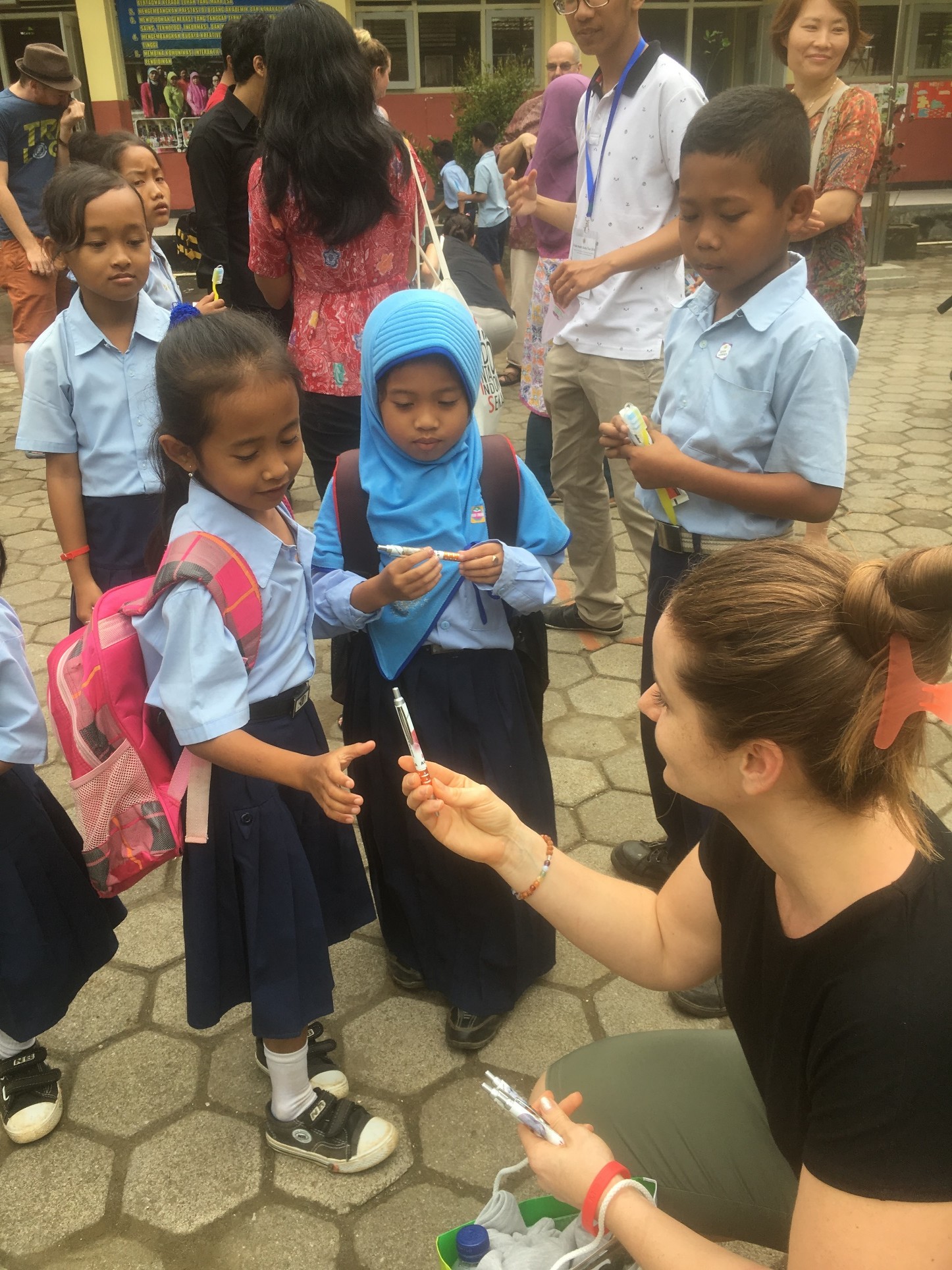
Sharing stationery.
Q: How do you think the Public Health Study Tour will influence your future career or studies?
I have gained an understanding regarding another culture, beliefs and way of living. I have gained an understanding of the limitations other cultures may endure, related to individual and public health and I will carry this knowledge and be mindful throughout my professional career.
Q: What did you most enjoy about the seminar series?
We were privileged to meet so many professionals. From the Australian Embassy, Indonesia, to the Health Professionals in the local clinics. Becoming acquainted with lecturers and speakers from a variety of health sectors and also realising that University expectations in Indonesia are very similar to University in Australia.
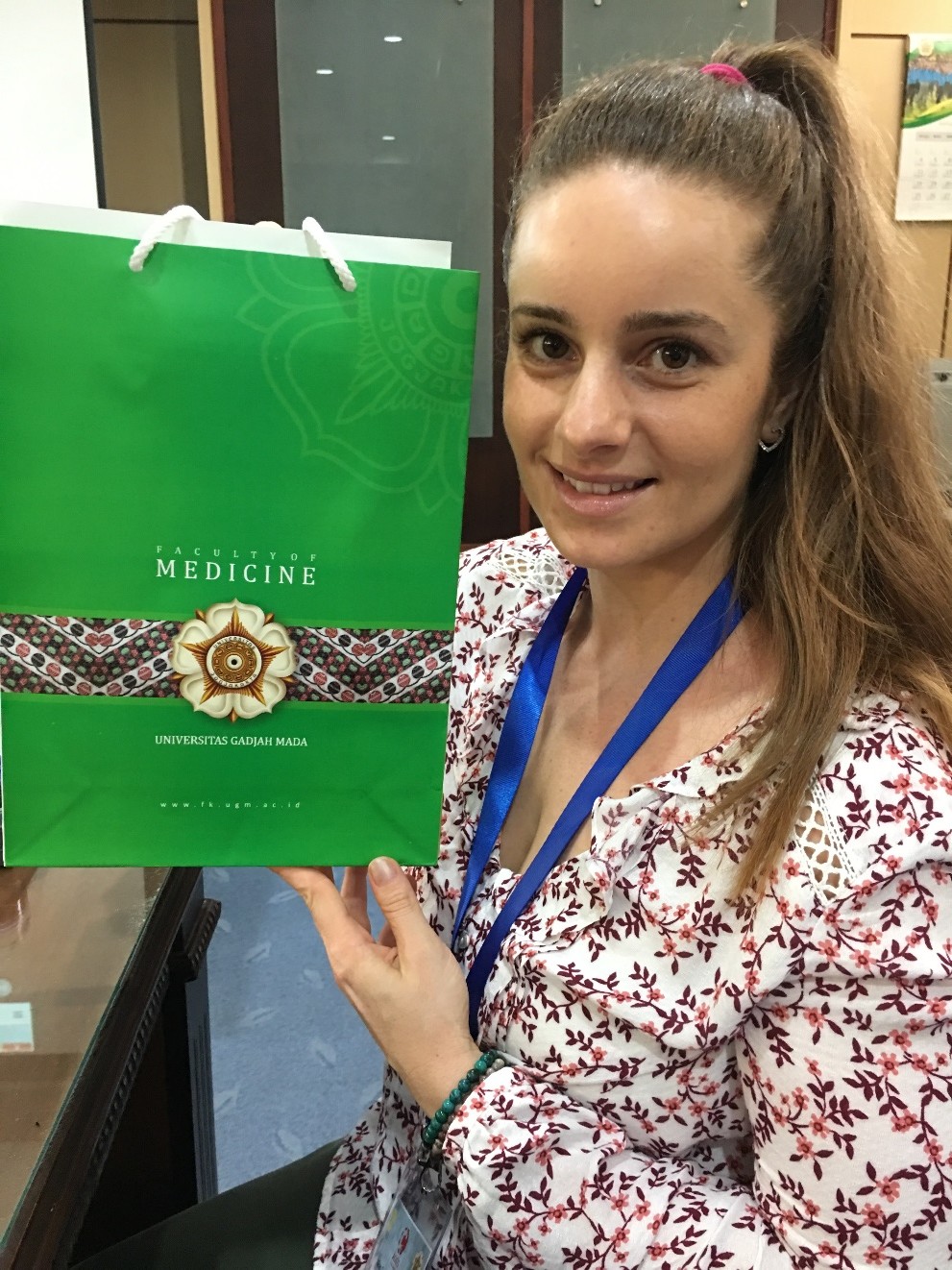
Welcome pack from Universitas Gadjah Mada.
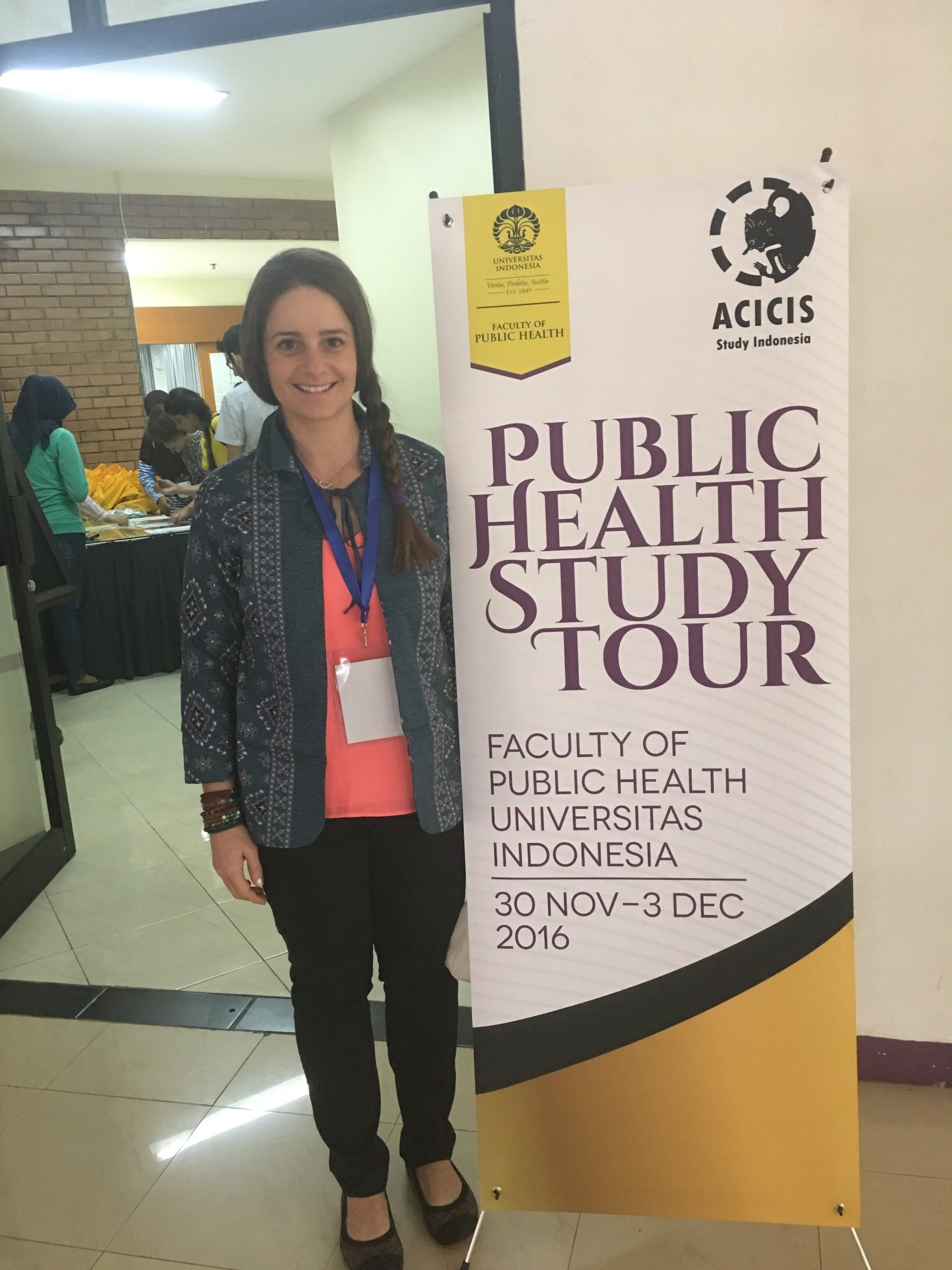
Opening ceremony at the University of Indonesia.
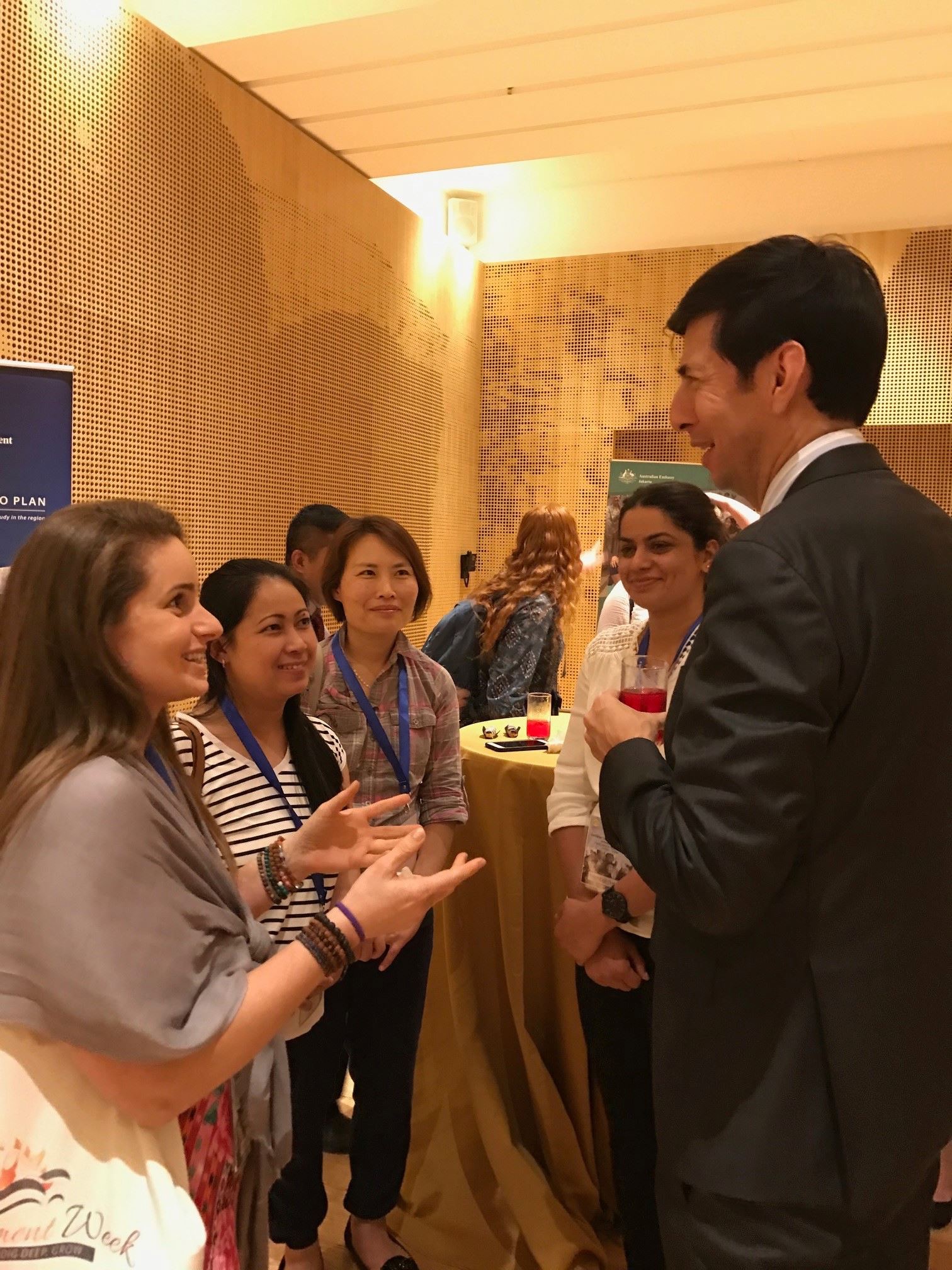
Privileged to meet and discuss public health with Dr Justin Lee – Australian Deputy Ambassador.
Q: What was your favourite aspect of visiting Indonesia.
The ancient attractions are my favourite. The weather, the vibrant green jungle trees that seem to be everywhere. I admire the strength of religion and culture among the people although it is so unique to mine.
I respect the way in which the people greet each other, and I have continued this behaviour when greeting people in Australia. I have also taught my children to carry this action forward when greeting people too. The importance of the opening and closing ceremonies everywhere we went.
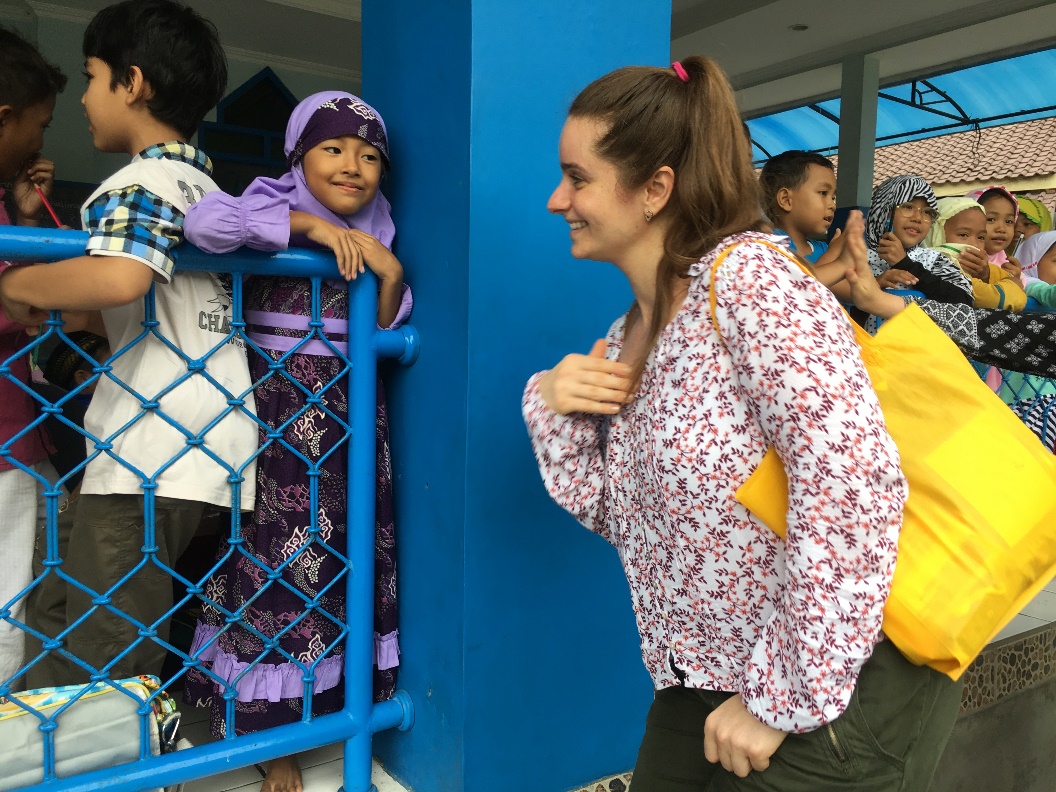
Greeting a child at a local school.
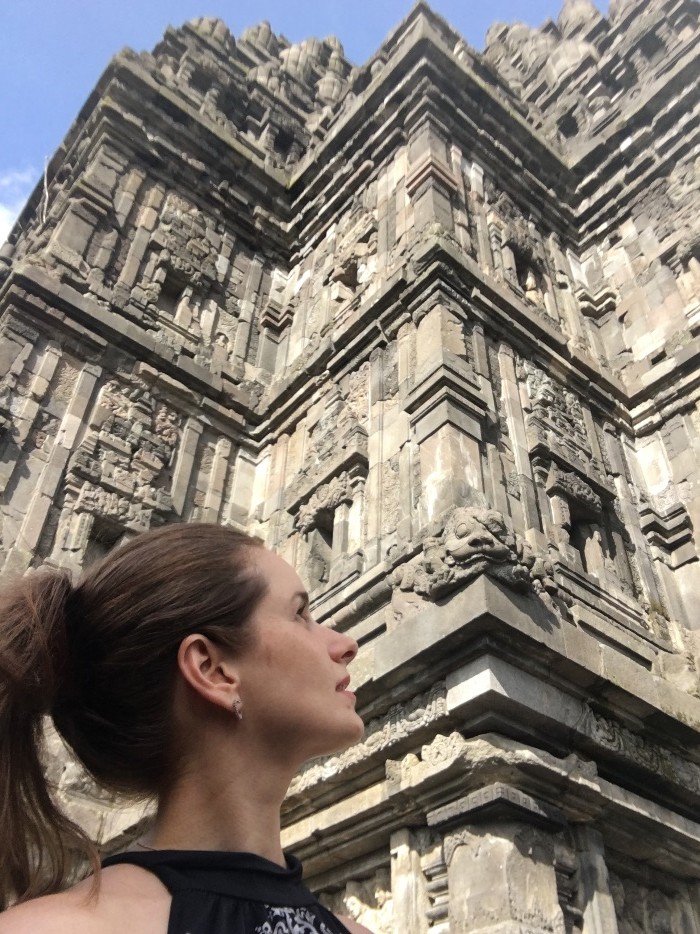
Guided walk through a temple.
